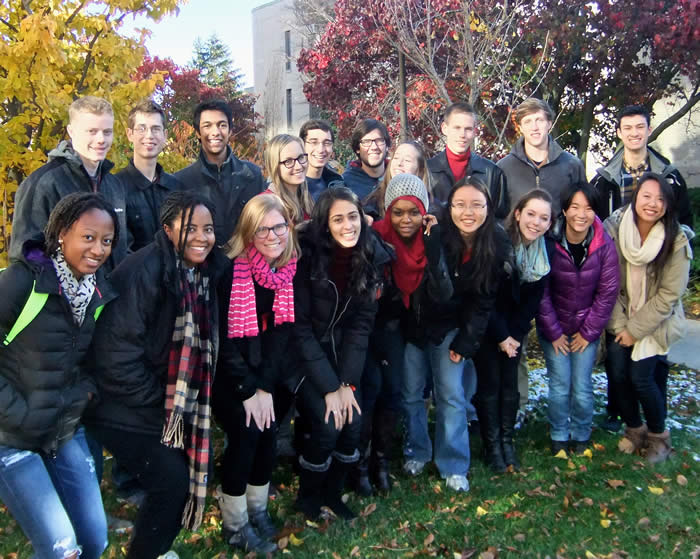Sophomore Academic Year
Sophomore Year Academic Core
How have the classical traditions in the humanities reflected on the question of the good citizen?
Students will be introduced in three small sequential seminars to the issues of ethics and civic life.
PHIL 273-1: The Good Life
In this course, we will consider what makes for a good life from birth to death. We will ask questions like these (and in this kind of order): is coming into existence bad for you? Is being born with a disability a harm? Is being a child good for you? How much freedom should the state afford teenagers? How can college change you for better or worse? What are the moral duties of pregnant persons? What do parents owe their children? Is living a good life incompatible with living a moral life? What would it mean for your life to go well anyway? What is the “midlife crisis” and how could we navigate it? How can we age thoughtfully and what do we owe our elders? Is death bad? Would it be desirable to live forever? Via considering these questions, we will also focus on becoming clearer and more persuasive writers."
PHIL 273-2: The Moral Life
We will consider how we are to treat and interact with others. Should we try, in all our actions, to bring about the greatest good, or are there other considerations to which we should be responsive? Are there some things that we should never do, no matter how much good we could bring about by doing so? Should we always keep our promises, and if so why? Do we have, or can we justify, special obligations to our friends and family? Do our professional and other roles shape what we have reason to do? How do we understand our obligations towards strangers?
PHIL 273-3: The Good Society
This course investigates domestic and international questions. Is democracy necessarily the best form of government? Is it the only legitimate form of government? Do laws have moral authority simply because of the value of the rule of law? What is freedom and why is it important? What is the basis for such democratic freedoms as liberty of conscience and religion? What is it to have a right, and how do we know what our rights are? What is it for human beings to be equal? Is income disparity inherently a bad thing? Should the government try to make all citizens equally happy? What would an ideally just society look like? Is justice the only virtue of a state or a society—could a society be radically defective even if it is just? What is the moral basis for the institution of private property, or is it merely a means to economic ends? Is taxation a form of theft? What does justice require of our penal institutions? Is the death penalty inherently wrong? Is it unjust that some nations are much wealthier than others and have more power? Is it wrong for one nation to intervene in the internal affairs of another? Under what conditions, iif any, is war justified? Is torture a morally acceptable tactic?
Throughout the sophomore year students will also become better acquainted with Evanston's needs and will meet with members of the local community. Their goal will be to select a target issue that will be further refined when they return to campus from their junior year abroad, and that will be carried out as a collaborative capstone project in their senior year.
Brady Scholars - Class of 2016

